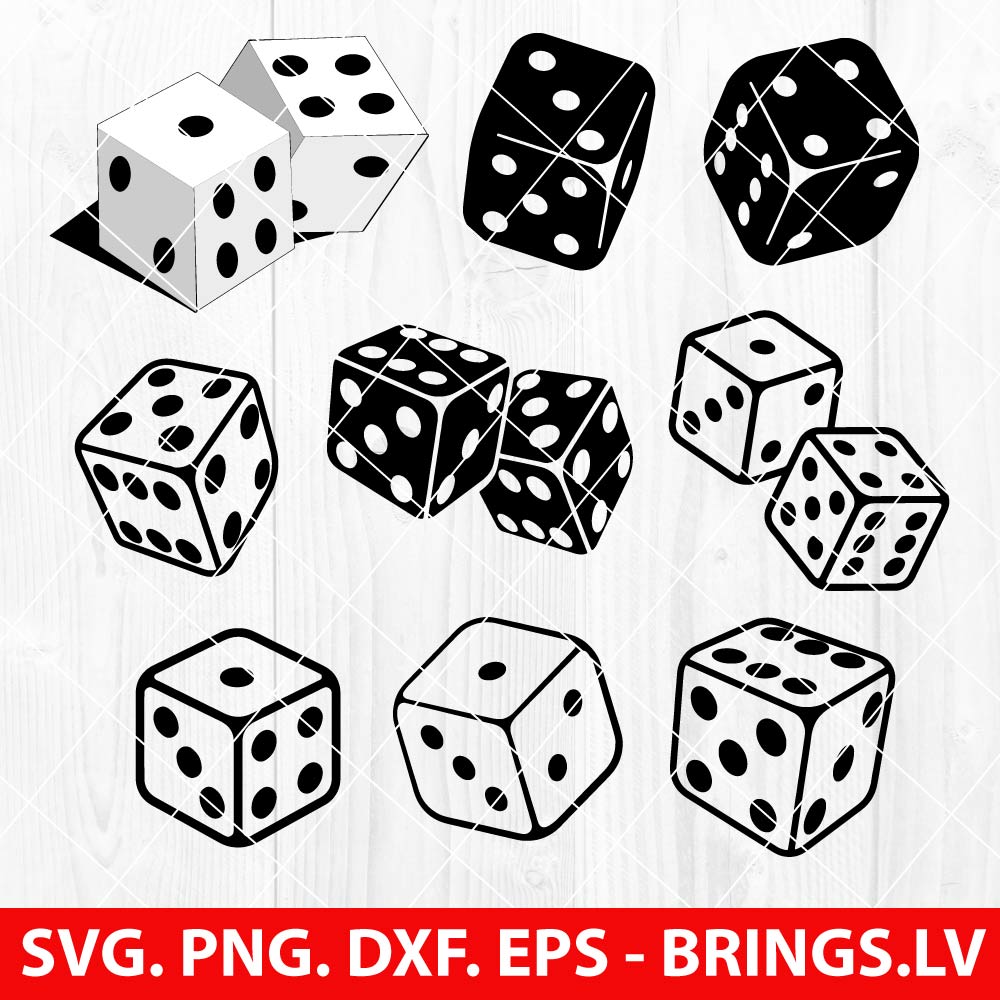Description
Designing dice SVG involves considering various factors, including the number of faces, shape, size, material, and visual aesthetics. Here’s a general guide to help you design dice:
Number of Faces (Sides):
Most common dice SVG have six sides, but you can design dice with any number of faces. Popular variations include four-sided (pyramid), eight-sided, ten-sided, twelve-sided, and twenty-sided dice.
Consider the purpose of your dice. Role-playing games often use various-sided dice for different functions (e.g., a 20-sided die for determining critical hits).
Shape:
Traditional dice SVG have a cubic shape, but you can explore different shapes like tetrahedrons (four-sided), octahedrons (eight-sided), dodecahedrons (twelve-sided), or icosahedrons (twenty-sided).
Unique shapes can make your dice stand out, but ensure they are practical for rolling.
Size:
Determine the size of your dice. Standard dice are usually around 16mm to 19mm per side, but you can go larger or smaller depending on your design preferences.
Consider the comfort of holding and rolling the dice.
Material:
Common materials include plastic, metal, wood, or even gemstones for high-end dice.
The material affects the weight, feel, and durability of the dice.
Pips vs. Numbers:
Decide if you want pips (dots) or numbers on the faces. Traditional six-sided dice have pips, while role-playing dice often have numbers.
Ensure the placement is clear and easily readable.
Color and Finish:
Choose a color scheme that fits the theme or purpose of your dice.
Consider transparent or translucent materials for a unique look.
Decide on the finish, such as matte, glossy, or metallic.
Engravings or Inclusions:
Explore engravings, symbols, or inclusions within the dice for added flair.
Custom designs or images can enhance the aesthetic appeal.
Accessibility:
Ensure your dice SVG are easily distinguishable, especially for players with color blindness or visual impairments.
Use high contrast for numbers or pips.
Prototyping:
Create prototypes to test the design, weight, and balance of your dice.
Consider 3D printing for prototyping before mass production.
Regularity and Balance:
Maintain regularity in the shape and size of faces for balanced rolls.
Ensure that your dice SVG do not favor certain outcomes due to imperfections.
Remember to consult with manufacturers who specialize in dice production for the best results. Whether you’re creating custom dice for gaming, educational purposes, or as a collector’s item, attention to detail will contribute to a successful and visually appealing design.

Beautiful! Exactly what I wanted!
The quality is as expected. Quick response from the seller.
I love these thank you so much for creating these items.
Better than expected, I used them as a svg file and created an ornament.
Thank you very much ..Everything is perfect.